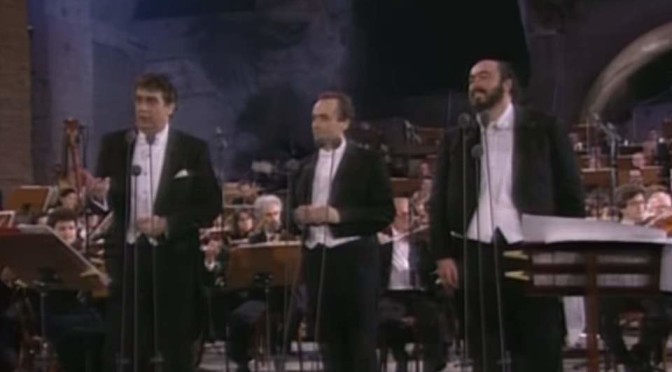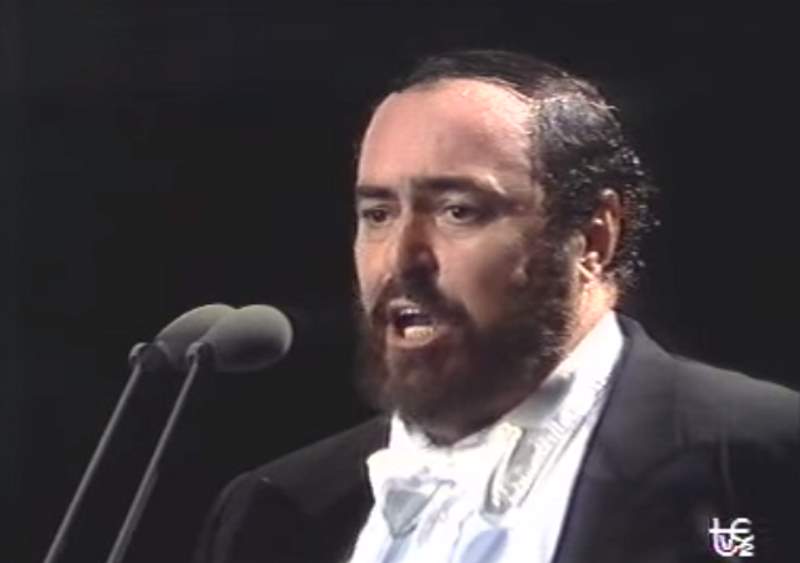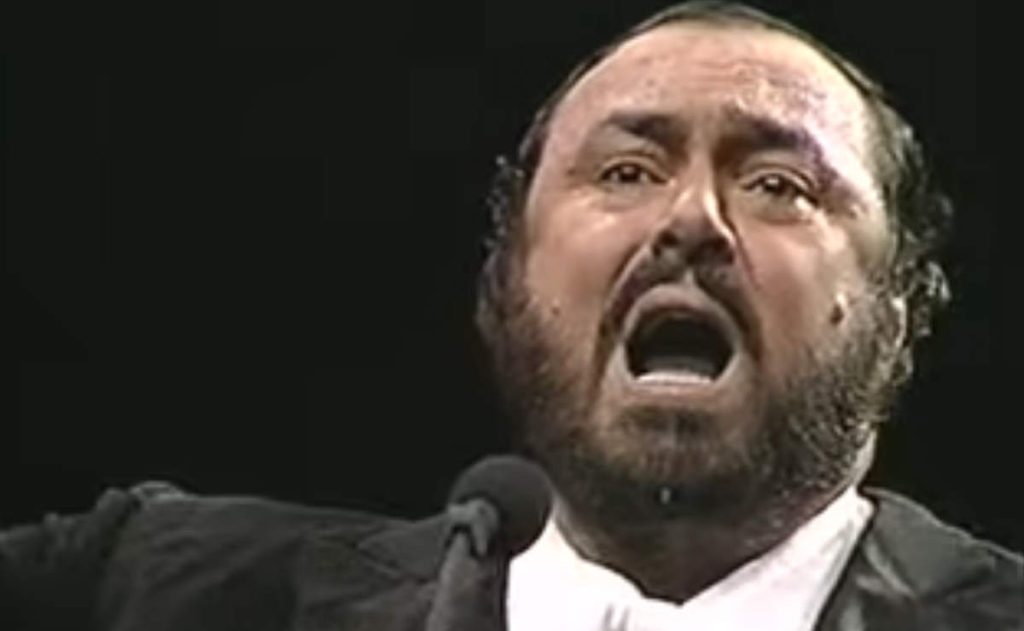The most popular operatic singing group during the 1990s and early 2000s, the Three Tenors, Luciano Pavarotti, Plácido Domingo, and José Carreras sing Nessun Dorma, a very famous tenor aria from Giacomo Puccini’s opera in three acts, Turandot. Recorded on July 7, 1990, in Rome as the first Three Tenors concert with the orchestra of the Maggio Musicale Fiorentino and the orchestra of Teatro dell’Opera di Roma under Zubin Mehta, on the eve of Italia 90. The recording, released on the Decca Classics label, won the Grammy Award for Best Classical Vocal Performance in 1991 (33rd Grammy Awards).
Nessun Dorma
Nessun Dorma is one of the best-known tenor arias in all opera. It is sung by Calaf, il principe ignoto (the unknown prince), who falls in love at first sight with the beautiful but cold Princess Turandot. However, any man who wishes to wed Turandot must first answer her three riddles; if he fails, he will be beheaded.
Prince Calaf attempts the impossible.
Her first riddle is told:
“What is born each night and dies at dawn?”
Prince Calaf answers: “Hope!”. Correct.
Turandot, unaffected, asks her second riddle:
“What flickers red and warm like a flame, yet is not fire?”
“Blood.” Calaf is right again. No suitor has proceeded this far, ever. This time, the princess becomes unnerved. She asks her third riddle:
“What is like ice yet burns?”
Silence falls over the crowd. A few moments later, Calaf shouts, “Turandot!” He is right again. The crowd cheers and congratulates Calaf, thankful his life was not lost and future lives were saved.
Nonetheless, the cruel princess recoils at the thought of marriage to him. She pleads with her father to spare her marriage to Prince Calaf, some stranger. Her father refuses. Prince Calaf, in order to appease the princess, offers her another chance by challenging her to guess his name by dawn. (As he kneels before her, the Nessun dorma theme makes a first appearance, to his words, “Il mio nome non sai!”) If she does so, she can execute him; but if she does not, she must marry him. The cruel and emotionally cold princess then decrees that none of her subjects shall sleep that night until his name is discovered. If they fail, all will be killed.
As the final act opens, it is now night. Calaf is alone in the moonlit palace gardens. In the distance, he hears Turandot’s heralds proclaiming her command. His aria begins with an echo of their cry and a reflection on Princess Turandot:
Nessun dorma! Nessun dorma!
Tu pure, o Principessa,
nella tua fredda stanza,
guardi le stelle
che tremano d’amore, e di speranza!
Ma il mio mistero è chiuso in me;
il nome mio nessun saprà!
No, No! Sulla tua bocca
lo dirò quando la luce splenderà!Ed il mio bacio scioglierà
il silenzio che ti fa mia!
None shall sleep! None shall sleep!
Even you, O Princess,
in your cold bedroom,
watch the stars
that tremble with love and with hope!
But my secret is hidden within me;
none will know my name!
No, no! On your mouth
I will say it when the light shines!
And my kiss will dissolve
the silence that makes you mine!
Just before the climactic end of the aria, a chorus of women is heard singing in the distance:
Il nome suo nessun saprà,
E noi dovrem, ahimè, morir, morir!
No one will know his name,
and we will have to, alas, die, die!
Calaf, now certain of victory, sings:
Dilegua, o notte!
Tramontate, stelle!
Tramontate, stelle!
All’alba vincerò!
Vincerò! Vincerò!
Vanish, o night!
Fade, you stars!
Fade, you stars!
At dawn, I will win!
I will win! I will win!
Sources
- Ivo Pogorelić plays Beethoven’s Für Elise - July 25, 2024
- Telemann: Concerto for Recorder and Viola da Gamba [Bremer Barockorchester] - July 23, 2024
- Gershwin: Rhapsody in Blue [Lang Lang] - July 21, 2024


